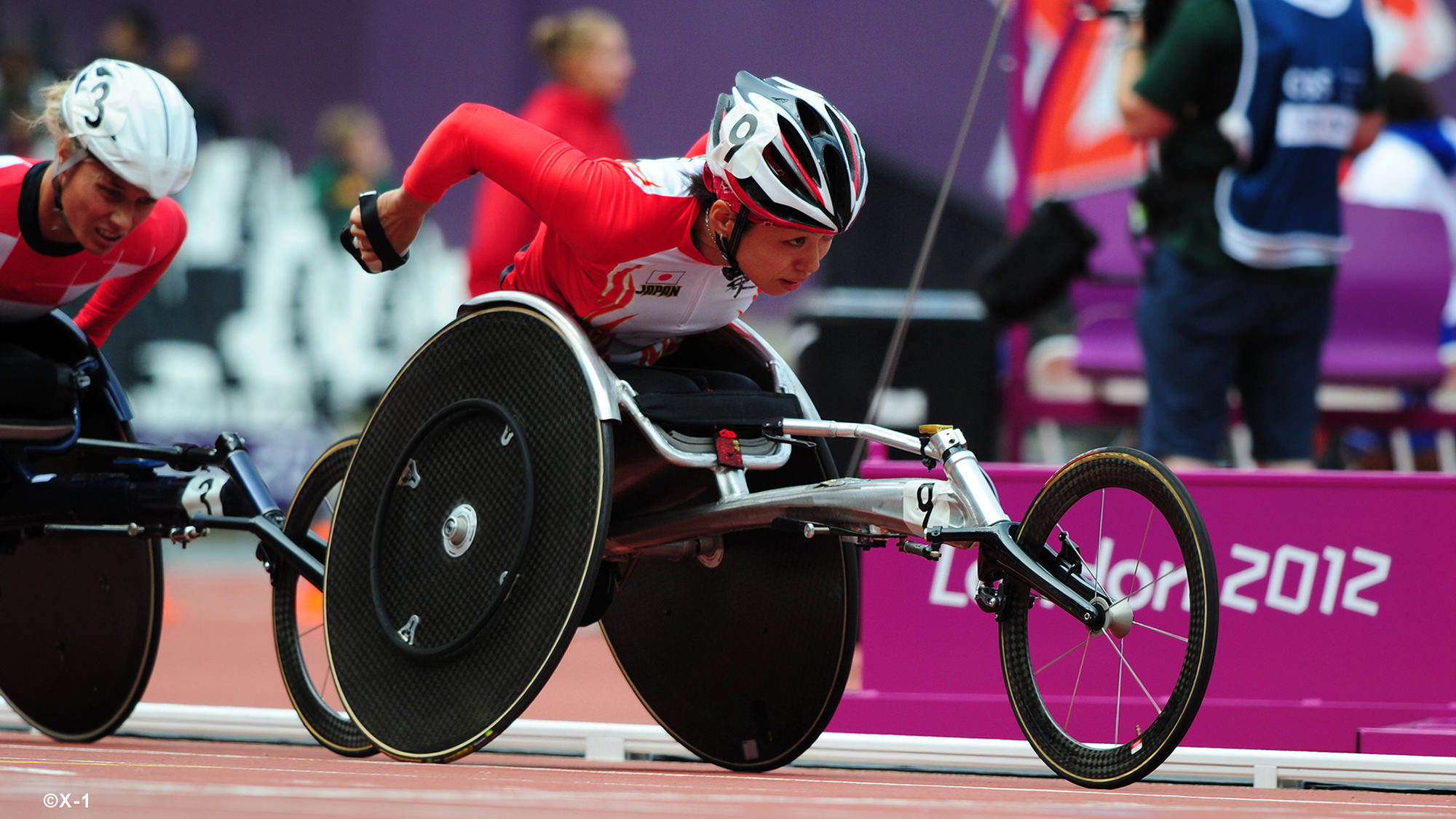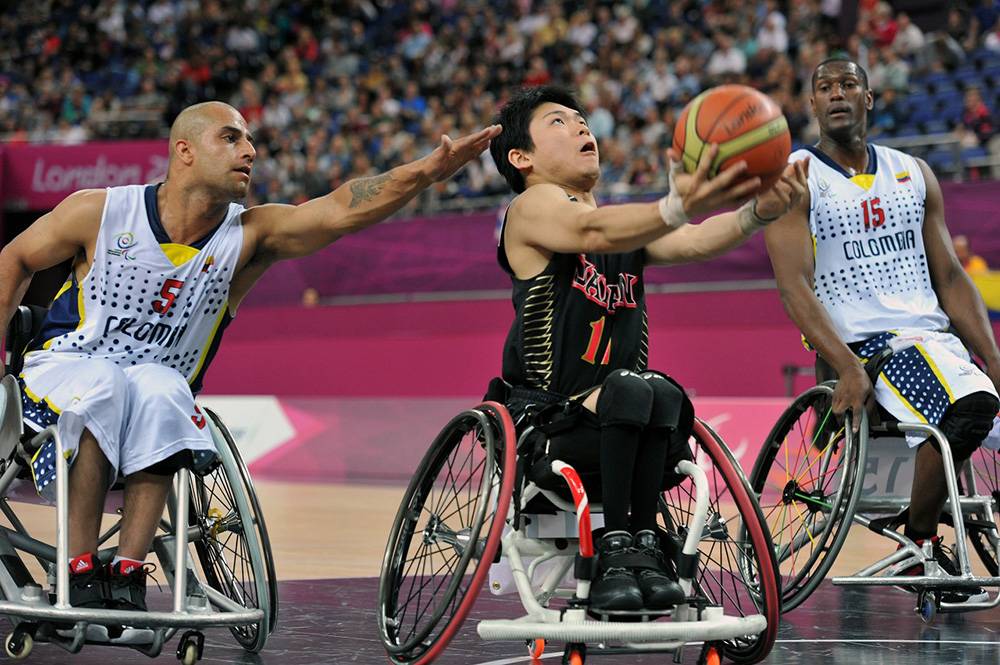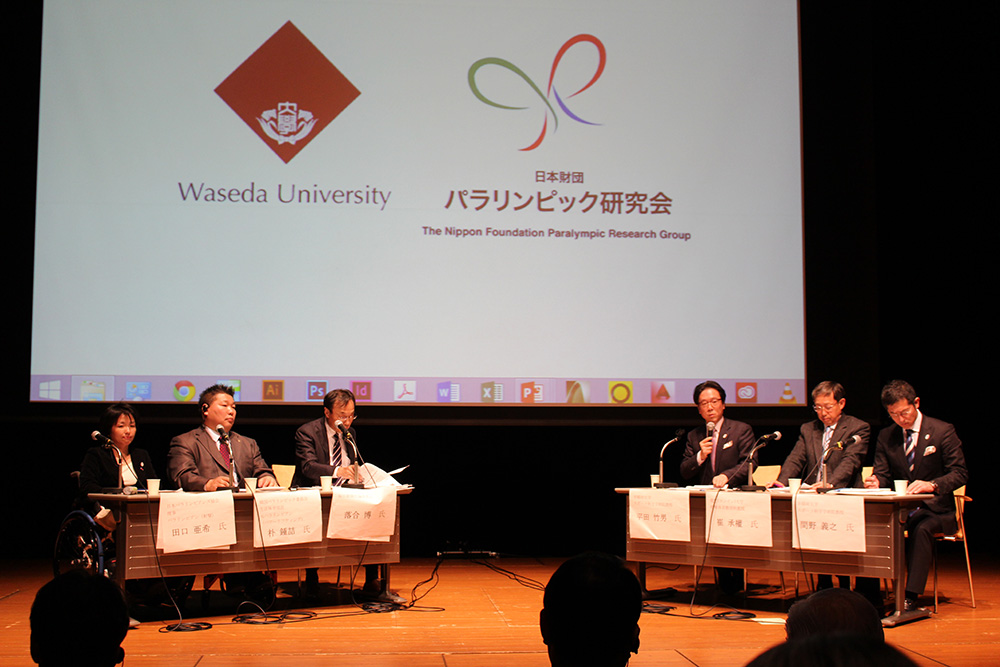Paralympic Support

The Paralympic Games
Held every four years since 1960, the Paralympic Games are a major international sporting event for athletes with impairments. Approximately 4,200 athletes from 164 countries and regions, including Japan, participated in the London 2012 Paralympic Games, the 14th time the event was held.
The foundations of the Paralympics were laid in England following World War II, when sports were introduced as a form of rehabilitation for injured veterans. The first four Games featured wheelchair sports only, and therefore came to be known as the Paralympics, a combination of Paraplegia and Olympics. Events were subsequently expanded to include athletes with other impairments including cerebral palsy, but continued to be called the Paralympics in the sense of Para meaning “alongside” the Olympics.

There are other international sporting events for athletes with various types of impairments, including the Deaflympics for deaf athletes; and for athletes with intellectual impairments, there are the Inas Global Games and the Special Olympics in addition to the Paralympics.
In Japan, the Tokyo 1964 Paralympic Games raised the profile of sports for athletes with impairments, and by the time of the 1998 Nagano Winter Olympics and the 2004 Athens Summer Olympics, a structure for training these athletes had been put into place. The Basic Act on Sport was also enacted in 2011. Para-sport leagues are now receiving greater funds for athlete development, and have adopted athlete development programs similar to those used for the Olympic Games.
Commencement of Support by The Nippon Foundation Paralympic Support Center
Despite increased understanding of and support for para sports, para-athletes in Japan continue to face a number of issues. For example, of the approximately 30 para sports leagues that will be supported, roughly one-third are not legally incorporated (as of June 2, 2015). Some have dedicated offices, but others operate from people’s homes. There are almost no full-time staffs. This situation is seen making it difficult to prepare for the Paralympics and develop competitively.

In response, The Nippon Foundation established The Nippon Foundation Paralympic Support Center(External site) in June 2015. With the aim of promoting the Paralympic Movement, the Support Center seeks to contribute to a successful Tokyo 2020 Paralympics by functioning as a joint office supporting leagues’ administrative operations, training volunteers, and promoting understanding of the Paralympics.
Prior to establishing the Support Center, following Tokyo’s being named the host city for the 2020 Olympic and Paralympic Games, The Nippon Foundation set up The Nippon Foundation Paralympic Research Group(External site) in June 2014. The Research Group was established to study a range of issues related to what shape the Paralympics should take, from a private-sector perspective, with the aim of releasing a set of recommendations in the spring of 2016.
Activities of The Nippon Foundation Paralympic Support Center
Promoting the Paralympic Movement
- Building a supporting framework for para-sport leagues
- Creating an environment in which athletes can focus on their training
- Promoting awareness of the Paralympic Games
- Promoting Paralympic volunteerism
- Conducting Paralympic-related academic research
- Supporting para sports internationally
- Supporting culture and the arts for persons with impairments
The Nippon Foundation Para Athlete Scholarship Program
The Nippon Foundation Para Athlete Scholarship is a scholarship program for student athletes enrolled at schools operated by the Educational Foundation of Nippon Sport Science University Group, which includes Nippon Sport Science University and its affiliated high schools. Scholarships are provided to athletes who have physical or intellectual impairment and are expected to be able to compete at the Paralympic, Olympic, or similar global level.
The program was launched in 2017, with the aim of supporting 50 para athletes by 2020.
Fiscal 2017 The Nippon Foundation Para Athlete Scholarship Recipients
| Name | Gender | Sport |
|---|---|---|
| Sae Tsuji | Women | Para athletics |
| Wataru Horie | Men | Para ice hockey |
| Takumi Shukunobe | Men | Table tennis |
| Uchu Tomita | Men | Para swimming |
| Ammi Hondo | Women | Para alpine skiing |
| Honoka Misu | Women | Para athletics |
| Nanami Miyasaka | Women | Shooting |
| Kazuhiro Takai | Men | Para athletics |
| Taiyo Imai | Men | Badminton |
| Airi Ike | Women | Para swimming |
| Kiho Sakaguchi | Women | Shooting |
| Yuichi Yamate | Men | Para athletics |
| Renshi Chokai | Men | Wheelchair basketball |
| Yudai Suzuki | Men | Para athletics |
| Tomomi Tozawa | Women | Para athletics |
| Taisei Kasamatsu | Men | Para athletics |
| Sakura Koike | Women | Para swimming |
| Soki Saito | Men | Para athletics |
| Genki Yamaguchi | Men | Para swimming |
Fiscal 2018 The Nippon Foundation Para Athlete Scholarship Recipients
| Name | Gender | Sport |
|---|---|---|
| Takumi Tsujimura | Men | Table tennis |
| Natsumi Abe | Women | Soccer, Futsal |
| Yudai Ishikawa | Men | Para ice hokey |
| Kota Kubota | Men | Para swimming |
| Yoshinobu Takamatsu | Men | Wheelchair basketball |
| Makoto Takahashi | Women | Softball |
| Yudai Sato | Men | Table tennis |
| Mitsuki Kitamura | Men | Para swimming |
Fiscal 2019 The Nippon Foundation Para Athlete Scholarship Recipients
| Name | Gender | Sport |
|---|---|---|
| Daisuke Mitsumoto | Men | Wheelchair basketball |
| Yuri Tomono | Women | Para table tennis |
| Miku Miyagi | Women | Deaf soccer |
| Takumi Sasahara | Men | Para athletics (Wheelchair racer) |
| Kohei Takahashi | Men | Para alpine skiing |
| Soshi Yoshigoe | Men | Para equestrian dressage |
| Ryuga Akaishi | Men | Wheelchair basketball |
| Kazushige Yoshida | Men | Para athletics |
| Yamato Shinbo | Men | Para athletics |
| Erina Yuguchi | Women | Para athletics, Para canoe, Sitting volleyball |
| Riki Azuma | Men | (Olympic) speed skating |



